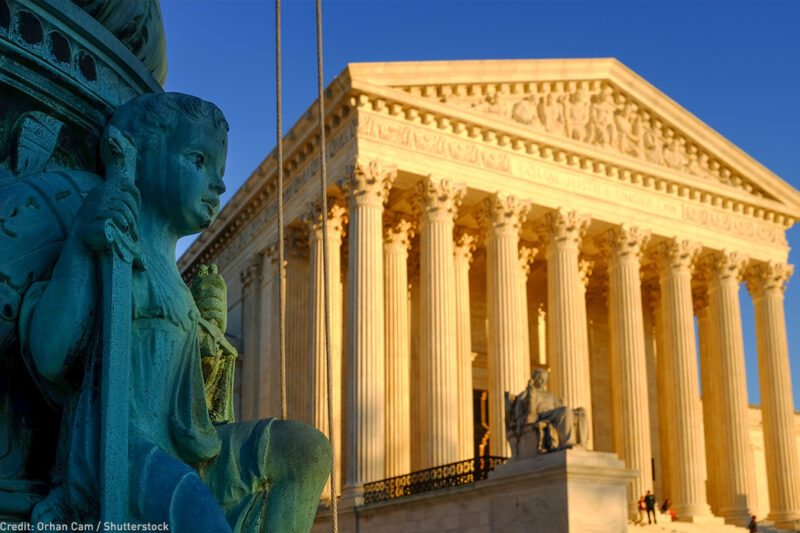Can Businesses Turn LGBT People Away Because of Who They Are? Thatโs Up to the Supreme Court Now.


The United States Supreme Court just agreed to decide a case about whether a business can refuse to sell commercial goods to a gay couple because of the business ownerโs religious beliefs. A win for the business could gut the nationโs civil rights laws, licensing discrimination not just against lesbian, gay, bisexual, and transgender people, but against anyone protected by our non-discrimination rules.
In July 2012, Debbie Munn accompanied her son, Charlie Craig, and his fiancรฉ, Dave Mullins, to the Masterpiece Cakeshop just outside of Denver to pick out a cake for their wedding reception. When the bakeryโs owner heard that the cake was for two men, he said he wouldnโt sell them a cake because of his religious beliefs.
Debbie was stunned and humiliated for Charlie and Dave. As she has said, โIt was never about the cake.โ She couldnโt believe that a business would be allowed to turn people away because of who they are or whom they love. They might as well have posted a sign in the shop saying โNo cakes for gays.โ
The Colorado courts agreed with Debbie and ruled that the bakeryโs refusal was unlawful and rejected the bakeryโs request for a religious exemption from the stateโs longstanding non-discrimination law.
By granting review in Charlie and Daveโs case, the Supreme Court has placed a spotlight on supposed tensions between equality and religious liberty. But the country has already found the right balance between these two important constitutional interests.
Under the Constitution, we each have the right to our own religious beliefs. We are empowered to act on those beliefs -- but not when our actions would harm others. Thatโs because religious freedom doesnโt give anyone the right to discriminate against or harm other people.
When businesses open their doors to the public, they must open them to everyone on the same terms, regardless of race, color, national origin, disability, or โ under many state laws โ sex, sexual orientation, or gender identity. Even when a business ownerโs religious beliefs may motivate her to discriminate, that doesnโt justify an exemption from our civil rights laws. Providing commercial services, like selling cakes, doesnโt mean a business owner is endorsing anyoneโs marriage. It simply means they are following the rules that apply to us all.
Demands for religious exemptions from civil rights laws are not new. In the past, businesses have repeatedly sought to pay women less than men because of a religious belief that men are โheads of householdโ and women should not work outside the home. Other businesses have refused service to people living with HIV because of a belief that they are sinful. Still others turned people away from restaurants because of their belief that they should not interact with people of a different race. The courts rightly rejected all of these claims for religious exemptions, despite the fact that they were based on deeply held beliefs.
Thereโs no reason that religious exemptions should be any more acceptable when it comes to turning people away because of religious beliefs about sexual orientation or gender identity. Courts across the country have agreed, including a decision from the in February.
The religious exemptions issue has gained prominence recently as civil rights protections for gay and transgender people have become more widespread. States have proposed laws that would license discrimination by businesses, government workers, adoption agencies, and counselors. Congress has considered similar measures. And President Trump has signed an executive order that signaled his intent to use religious exemptions to advance discrimination. But polling shows that both the and reject these overbroad exemptions and recognize them as discrimination.
Charlieโs mom was right: Itโs not about the cake. Or the flowers. Itโs about not being turned away from a business because of who you are. Religious freedom must be protected in America, but whatโs going on here is pure discrimination.

